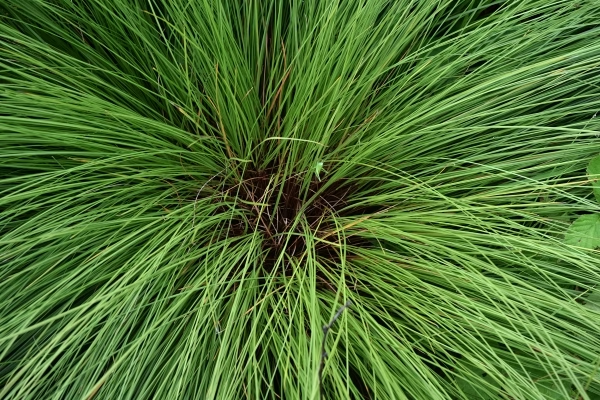
Prairie Dropseed
Botanical Name
:
Sporobolus heterolepis
Plant Type
:
Warm-season perennial ornamental grass
Seasons
:
Grows in spring and summer, flowers in late summer to fall
Sun Level
:
Full sun (6+ hours of direct sunlight)
Ideal Soil Temperature for Planting
:
65-75°F (18-24°C). Planting is best in late spring or early summer, although fall planting can also be successful
Soil Type
:
Well-drained, sandy, loamy, or rocky soil; drought-tolerant once established
Hardiness Zones
:
3–9 (USDA)
Germination
:
14-30 days, requires cold stratification for better germination rates
P.H. Level
:
6.0-7.5
Water/Irrigation
:
Low water needs; drought-tolerant once established but needs occasional watering in extreme heat
Fertilization
:
Minimal; can thrive in poor soils, but a light compost application in early spring can boost growth
Habit
:
Clumping, upright, and arching.Forms attractive, vase-shaped clumps
Propagation
:
By seed (requires cold stratification) or division in early spring
Final Plant Height
:
2-3 feet (60-90 cm)
Spread
:
Clumps gradually expand
Spacing
:
12-18 inches apart for dense plantings
Flowers
:
Airy, pinkish-tan flower panicles appear in late summer, turning golden in fall
Attracts
:
Birds (seeds in fall), pollinators
Uses
:
Ornamental landscaping, erosion control, prairie restoration, ground cover, and mass plantings
Companions
:
Coneflowers, Black-eyed Susans, Little Bluestem, Butterfly Weed, Asters
Pruning
:
Cut back foliage to a few inches above the ground in late winter or early spring before new growth begins
Toxicity
:
Non-toxic to humans and pets
Pests
:
Pest-free but occasional aphids may appear but cause no serious damage
Diseases
:
Rarely affected by diseases, good air circulation helps prevent fungal issues
Fun Fact
:
Prairie dropseed is known for its fragrant flowers, which release a scent described as a mix of coriander and buttered popcorn!
Did You Know?
Seeds from Prairie Dropseed were historically used by Indigenous peoples to make flour
Botanical Name
:
Sporobolus heterolepis
Plant Type
:
Warm-season perennial ornamental grass
Seasons
:
Grows in spring and summer, flowers in late summer to fall
Sun Level
:
Full sun (6+ hours of direct sunlight)
Ideal Soil Temperature for Planting
:
65-75°F (18-24°C). Planting is best in late spring or early summer, although fall planting can also be successful
Soil Type
:
Well-drained, sandy, loamy, or rocky soil; drought-tolerant once established
Hardiness Zones
:
3–9 (USDA)
Germination
:
14-30 days, requires cold stratification for better germination rates
P.H. Level
:
6.0-7.5
Water/Irrigation
:
Low water needs; drought-tolerant once established but needs occasional watering in extreme heat
Fertilization
:
Minimal; can thrive in poor soils, but a light compost application in early spring can boost growth
Habit
:
Clumping, upright, and arching.Forms attractive, vase-shaped clumps
Propagation
:
By seed (requires cold stratification) or division in early spring
Final Plant Height
:
2-3 feet (60-90 cm)
Spread
:
Clumps gradually expand
Spacing
:
12-18 inches apart for dense plantings
Flowers
:
Airy, pinkish-tan flower panicles appear in late summer, turning golden in fall
Attracts
:
Birds (seeds in fall), pollinators
Uses
:
Ornamental landscaping, erosion control, prairie restoration, ground cover, and mass plantings
Companions
:
Coneflowers, Black-eyed Susans, Little Bluestem, Butterfly Weed, Asters
Pruning
:
Cut back foliage to a few inches above the ground in late winter or early spring before new growth begins
Toxicity
:
Non-toxic to humans and pets
Pests
:
Pest-free but occasional aphids may appear but cause no serious damage
Diseases
:
Rarely affected by diseases, good air circulation helps prevent fungal issues
Fun Fact
:
Prairie dropseed is known for its fragrant flowers, which release a scent described as a mix of coriander and buttered popcorn!
Did You Know?
Seeds from Prairie Dropseed were historically used by Indigenous peoples to make flour
Written by Salome Wapukha – https://www.linkedin.com/in/salome-wapukha-556700193/

